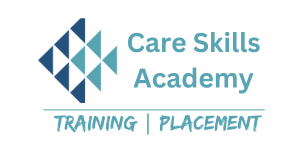When searching for the best AC repairing course, it’s essential to consider several factors: the curriculum, teaching methodology, practical exposure, certification, and the institution’s reputation. Air conditioning systems are complex, and mastering their repair requires a blend of theoretical knowledge and hands-on experience. Here’s a comprehensive guide to help you choose the best AC repairing course.
- Comprehensive Curriculum
A top-notch AC repairing course should offer a well-rounded curriculum that covers all essential aspects of air conditioning systems. This includes understanding the fundamentals of refrigeration cycles, electrical components, thermodynamics, and airflow dynamics. Additionally, the course should delve into advanced topics such as inverter AC systems, smart AC technologies, and energy efficiency standards. Look for programs that also cover the latest trends and technologies in the industry, ensuring that you stay ahead in a rapidly evolving field. - Hands-on Practical Training
Theory alone isn’t enough in the field of AC repair. The best courses emphasize hands-on practical training, allowing students to work with real AC units and systems. This could include disassembling and assembling AC units, diagnosing faults, and performing repairs and maintenance. On-the-job training or internships provided by the institution can be a significant advantage, giving students real-world experience and a better understanding of the challenges they will face in the field. - Experienced Instructors
The quality of instructors plays a crucial role in the effectiveness of any technical course. Look for courses taught by industry veterans with years of experience in AC repair. These professionals not only bring valuable insights into the classroom but also share tips and tricks that can only be learned through experience. Moreover, instructors who are up-to-date with the latest industry developments can provide students with the most relevant and current knowledge. - Certification and Accreditation
Upon completion of the course, it’s vital to receive a recognized certification that can boost your employability. Accredited courses are often more respected by employers and can open up more job opportunities. Ensure that the course you choose is accredited by a reputable organization in the HVAC (Heating, Ventilation, and Air Conditioning) industry. Certification from a well-known institution can also add significant value to your resume. - Reputation and Reviews
Before enrolling in any AC repairing course, research the institution’s reputation. Look for reviews and testimonials from past students to gauge the quality of the training. Institutions with a strong track record in producing skilled professionals are more likely to offer high-quality courses. Additionally, consider institutions that provide ongoing support to their students, such as job placement assistance or further learning opportunities. - Flexible Learning Options
Given that many students might be working professionals or have other commitments, the best courses often offer flexible learning options. This could include evening or weekend classes, online modules, or self-paced learning. Some institutions also offer hybrid models, combining online theory classes with in-person practical sessions, providing the best of both worlds.
Conclusion
Choosing the best AC repairing course requires careful consideration of various factors, including the curriculum, practical training, instructor expertise, certification, and the institution’s reputation. By selecting a course that excels in these areas, you’ll be well-equipped to succeed in the HVAC industry. Whether you’re a beginner looking to enter the field or an experienced technician seeking to upgrade your skills, the right course can make all the difference in your career progression.
